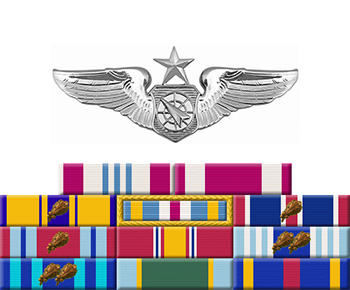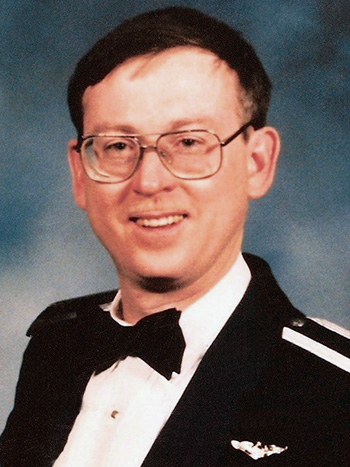
|
Steven A. Tuttle |
 |
|||
| Rank, Service | ||||
Major O-4, U.S. Air Force |
||||
| Veteran of: | ||||
|
||||
| Tribute: | ||||
Steven Tuttle was born on August 23, 1955, in New York. After graduating with a bachelor's degree from the State University of New York in Oswego, he entered Officer Training School on November 5, 1982, and was commissioned a 2d Lt in the U.S. Air Force at Lackland AFB, Texas, in February 1983. After completing Weapons Controller training at Tyndall AFB, Florida, Capt Tuttle served as a Weapons Controller and Operations Training Officer with the 621st Tactical Control Flight at Wiesbaden AB, West Germany, from June 1983 to August 1985, and then as a Weapons Controller, Fighter Allocator, and Chief of the Squadron Mobility and Exercise Branch of Flying Squadron One, E-3A Component, at Geilenkirchen AB, West Germany, from August 1985 to August 1990. His next assignment was as Assistant Professor of Aerospace Studies with the Air Force ROTC detachment at Syracuse University in Syracuse, New York, from September 1990 to May 1993, followed by service as an E-3 Sentry Air Surveillance Officer with the 962nd Airborne Air Control Squadron at Elmendorf AFB, Alaska, from April 1994 until he was killed in the crash of an E-3B Sentry (Call Sign "Yukla 27") shortly after takeoff from Elmendorf AFB on September 22, 1995. Steven Tuttle was buried at the Fort Richardson National Cemetery on Fort Richardson, Alaska. |
||||
|
||||

